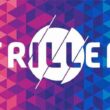Quick take:
- South Korea plans to introduce blockchain-based IDs to its citizens.
- The plan is part of the country’s strategy to tap into the digital economy.
- The government thinks it could generate $42 billion in additional GDP by digitising identities.
South Korea is diving deeper into the web3 space as it aims to take full advantage of the digital economy. The Asian nation has announced plans to introduce blockchain-based identities for its tech-savvy population citizens, as it eyes to take full advantage of the burgeoning digital economy.
According to the announcement, the Korean government believes it can generate at least 60 trillion won ($42 billion), or 3% of GDP, in economic value within a decade.
Blockchain-based digital identities utilise NFT technology and artificial intelligence (AI) to secure user data. The idea for web3 identities has gained traction in recent months amid the rapid growth of the metaverse.
Brands across the world seek to leverage the metaverse opportunity by offering digitised versions of the products, as well as, collectibles rewards as internet users continue to shift to web3.
Their ability to simplify verification on the web eliminates the need to upload identify confirmation documents like certificates thus accelerating the online transaction process. Korean citizens could easily apply for state benefits, transfer money or even cast a vote with one click, or fingerprint scan.
Web3 is generally described as a next-generation version of the internet that utilises decentralised applications, AI, blockchain technology, and AR/VR to foster the adoption of community-owned platforms.
The Korean government is targeting smartphone users with its new web3 product. Most smartphones have identity-implanted IDs that require fingerprints to gain access. This creates a solid foundation for launching blockchain-based IDs.
“Digitals IDs can yield huge economic benefits in finance, healthcare, taxes, transportation and other areas and may catch on quickly among the Korean population,” said Hwang Seogwon, an economist at Korea’s Science and Technology Policy Institute.
However, Seogwon warned that the process will require an intensive due-diligence assessment to ensure the risks associated with the technology do not outweigh the benefits.
Digital IDs are widely seen as the next step in digital evolution. A McKinsey report suggests that by onboarding all citizens into the new blockchain-based identity system, nations could grow the global by 13%, whilst also cutting business costs by trillions of dollars. On the other hand, the World Bank called digital IDs a “Game Changer” according to another report.
Korea plans to launch its web3 ID system by 2024, with a complete onboarding of its 45 million population expected to be done within the following two years.
Dubbed the world’s number-one country in applying technology to everyday life, business and government, Korea faces a bottleneck of having everyone renew their current IDs before switching to the new ID system.
Stay up to date:





